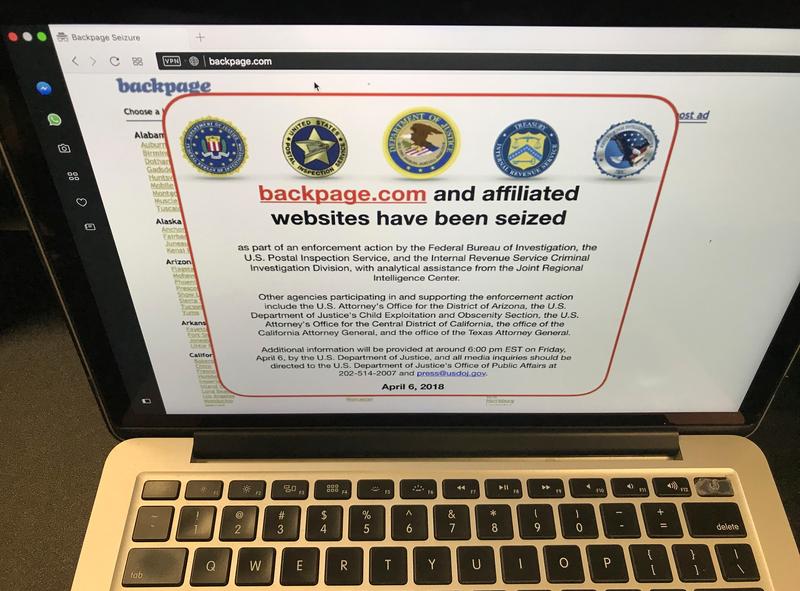
The President is scheduled to sign a pair of anti-sex trafficking bills into law Wednesday.
The legislation, known as FOSTA (Fight Online Sex Trafficking Act) and SESTA (Stop Enabling Sex Trafficking Act), are meant to hold accountable websites that profit from advertising sexual services from adults and children forced into sex work against their will. Even before the bill's signing, some sites, including Craigslist, took down their "personals" section. Backpage.com was taken down the FBI.
But many adult consensual sex workers say the laws won't help, and would instead make sex work much less safe, both for them and for people who are trafficked.
"Access to online platforms is actually one of the greatest safety mechanisms for people who are trading sex," Kate D'Adamo, a sex worker advocate, told WNYC. "It moves people from more precarious locations, like working on the street, where they face highers levels of violence and HIV transmission and exploitation and trafficking, onto a space where you can have a barrier between you and a potential client."
For children trafficked into sex work, who aren't advertising themselves on Craigslist, D'Adamo argues these bills also won't help.
"Every time we do something where sex workers are the collateral damage, trafficking victims are included in that," she says. To combat sex trafficking, she argues, the target should be things that make individuals exploitable: "economic instability, homelessness, documentation status."
D'Adamo spoke with WNYC's Richard Hake.
